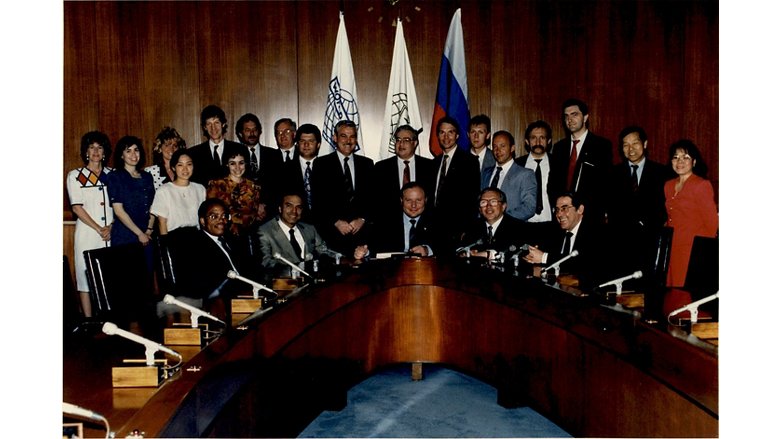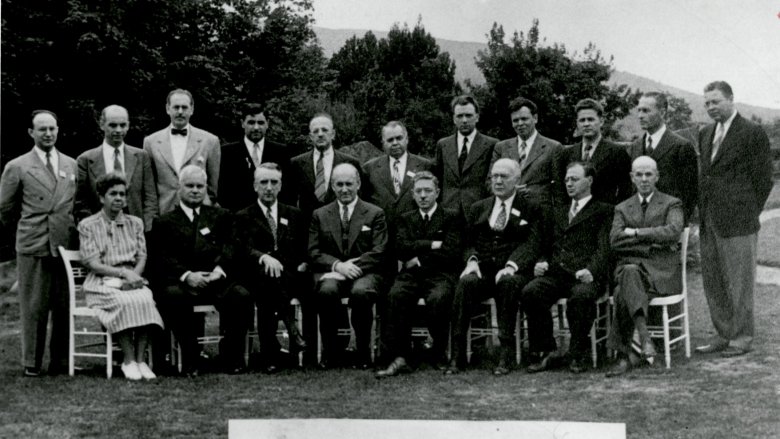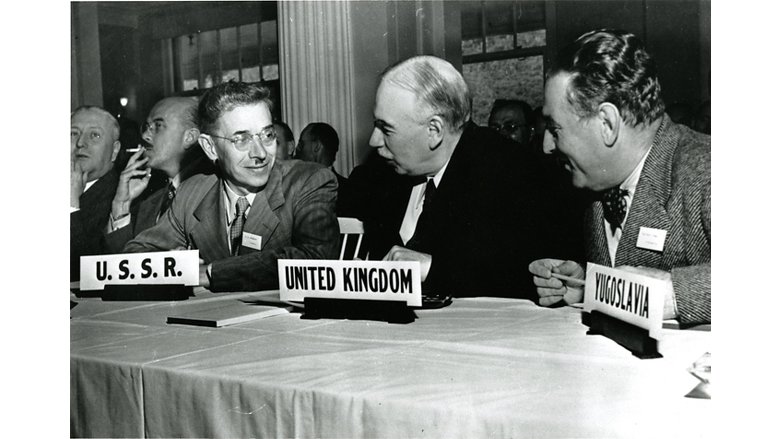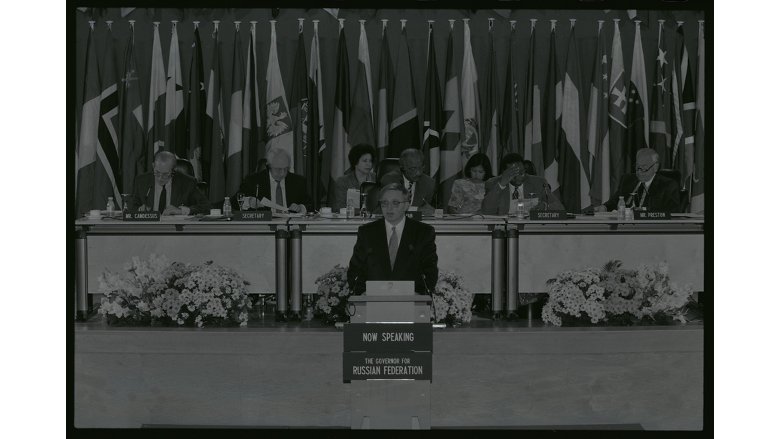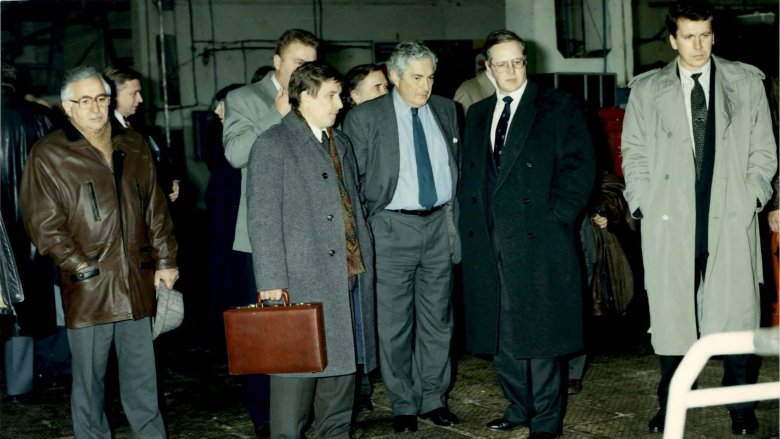30 years ago, on June 16th, 1992 Russia officially joined the Articles of Agreement of the International Bank of Reconstruction and Development and International Development Association, thus officially becoming a World Bank Member-country and an active participant of the global economic agenda.
During the 1990s development policy loans was the main instrument of cooperation between Russia and WBG, which helped the Government of Russia to address the tasks of budget stabilization, privatization, structural reforms and to provide social support to the country’s population. In addition, a number of investment projects, supporting infrastructure development, addressing social and economic challenges and supporting institutional development were implemented with the World Bank’s support. As a WBG country-member, Russia has received up to US$15 bln worth of loans and approximately US$160 mln of grant funding.
During those 30 years the role of Russia in the World Bank has been changing – starting from being a receiver of funds, since the beginning of 2000s our country has been gradually reducing the amount of financing received, while at the same time increasing the amounts of donor contributions to IDA capital, providing aid to the poorest countries, as well as increasing its contributions to the trust funds.
Russia regularly participated in IBRD capital replenishments. During its membership years Russia has contributed up to US$1 bln to WBG trust funds and intermediary funds. Russia’s financing priorities included, among others, public governance and finances, energy, healthcare, social security and education. With regards to regional distribution, activities of Russia-supported trust funds were focused on Europe and Central Asia (45% of the total financing) and Africa (41%). Witnessing significant interest from WBG shareholders to e-solutions in public services delivery, the announcement was made in 2021 that Russia will be joining the WBG GovTech Global Partnership as a donor. Under the auspices of the initiative, WBG will serve as an intermediary between the private sector, offering the latest digital solutions (digital banking, digital passports, blockchain registries, public services automatization) and development countries willing to deploy those solutions.
As a World Bank country-member, Russia is actively participating in discussing the key issues of the global agenda, including food and energy security, climate change and poverty reduction. We maintain and develop engagements with a variety of experts on a broad range of topics with the aim of increasing the effectiveness of the developmental aid.
Development experience and knowledge exchange are becoming the primary items on the agenda during interactions between Russia and the World Bank since, in addition to financing, the World Bank is also one of the most valuable sources of knowledge and experience in solving the key international and domestic challenges. Having an opportunity to bring on board the leading experts, and using the countries’ experience and latest development data, Bank provides its members with an opportunity to use the latest approaches to solving the key challenges, and serves as a platform for discussing and consolidation of such experience. It is not by chance, that becoming a global Knowledge Bank has become one of the key strategic goals for the WBG.
As the world is going through changes, so are the relationship between the World Bank and Russia, however even with the new challenges, World Bank persists as one of the key institutions of international development and the platform for a constructive global dialogue.
Version in Russian
30 лет назад, 16 июня 1992 года Россия присоединилась к Статьям Соглашения Международного банка реконструкции и развития (МБРР) и Международной ассоциации развития (МАР), официально став членом Всемирного банка и, как результат, активным участником глобальной экономической повестки.
В 1990-е годы главным инструментом сотрудничества России и Группы Всемирного банка (ГВБ) являлись бюджетные займы, с помощью которых Правительство РФ решало задачи макроэкономической стабилизации, приватизации, проведения структурных реформ и социальной поддержки населения. Благодаря поддержке Всемирного Банка был реализован и ряд проектов инвестиционного характера, направленные на развитие инфраструктуры, решение социально-экономических проблем, поддержку институционального развития. За время членства в организации Россия получила около 15 млрд долларов в виде займов и 160 млн долларов в виде грантов.
В течение 30 лет роль России во Всемирном банке претерпевала изменения – начав со статуса получателя средств, наша страна с начала 2000-х годов постепенно сокращала объемы получаемого финансирования, в то же время наращивая объемы донорских взносов в капитал МАР, занимающейся помощью беднейшим странам, и трастовые фонды.
Россия регулярно участвовала в пополнении капиталов МБРР. За время членства в Группе Всемирного Банка Россия внесла в траст-фонды и посреднические финансовые фонды Банка средств на общую сумму порядка 1 млрд долл. США. Приоритетными направлениями финансирования для России являются государственное управление и финансы, энергетика, здравоохранение и социальное обеспечение, а также образование. По региональной направленности деятельность трастовых фондов с российским участием концентрировалась на регионе Европа и Центральная Азия (45% от общего объема) и Африке (41%). Наблюдая огромный интерес акционеров ГВБ к электронным решениям в сфере предоставления государственных услуг и налогообложения, в 2021 году было объявлено о присоединении России в качестве донора к цифровому партнерству в государственной сфере (GovTech Global Partnership, GTGP). В рамках данной инициативы ГВБ будет выступать посредником между частным сектором, предлагающим новейшие цифровые решения (цифровой банкинг, цифровые паспорта, реестры данных на системе «блокчейн», автоматизация госуслуг), и желающими их внедрить развивающимися странами.
Будучи страной-членом Всемирного банка, Россия активно участвует в обсуждении ключевых вопросов международной повестки, в том числе, проблематики продовольственной и энергетической безопасности, изменения климата, снижения уровня бедности в мире. Нами поддерживаются и развиваются контакты со специалистами по самым разным направлениям в целях повышения эффективности помощи развивающимся странам.
Обмен опытом и знаниями в области развития выходит на первый план во взаимодействии России и Всемирного Банка, ведь помимо финансовых средств, Всемирный банк является и одним из ценнейших источников знаний и опыта в области решения ключевых проблем международного и внутристранового развития. Имея возможность привлекать ведущих мировых экспертов и опираясь на страновой опыт и самые свежие данные в области развития, Банк позволяет странам-членам использовать самые современные подходы к решению ключевых проблем, предоставляя площадку для обсуждения и обобщения такого опыта. Не случайно одним из приоритетных направлений стратегии развития ГВБ является постепенное закрепление за ним звания неформального глобального Банка Знаний.
Вместе со стремительно меняющимся миром претерпевают изменения и отношения Всемирного банка с Россией, однако даже с учетом новых вызовов, Всемирный банк остается одним из ключевых институтов международного развития и важнейшей площадкой для конструктивного глобального диалога.
Historical photos
